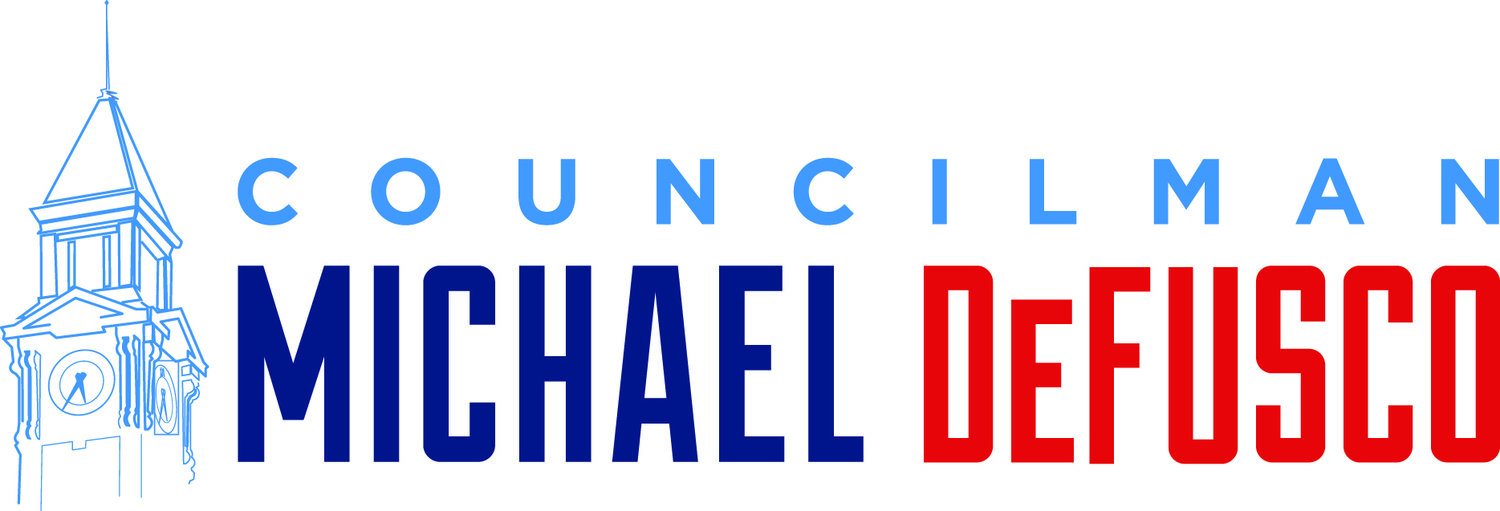PUTTING HOBOKEN’S FINANCES BACK IN ORDER
Source: City of Hoboken Annual Audit Report
Imagine a city with an 88% increase in the municipal debt load in the last eight years, a city caught hiding an $8.35 million liability to a major utility supplier, a city whose county tax share has increased by 90% and a city whose main commercial street is in ruins. You might think we’re talking about Camden or Paterson, but we’re not -- this is what’s happened in Hoboken under the last eight years of Mayor Dawn Zimmer, Freeholder Anthony Romano and Council members Ravi Bhalla and Jen Giattino. It’s a mess they all helped create and Mike DeFusco is the only candidate with a plan to change course and get Hoboken back on sound financial footing.
Hoboken’s Debt Has Exploded, But What Do We Have To Show For It?
Over the last six years, Hoboken’s long term debt has jumped from just over $90 million to nearly $170 million, an increase of nearly 90%. Meanwhile, our neighborhoods are still flooding during everyday rain storms, we haven't invested anything substantial in our city’s schools or recreation facilities and property taxes haven’t gone down. The big question is, what do we have to show for this debt, and how will it affect Hoboken moving forward?
Hoboken taxpayers will be forced to pay down this debt for generations unless something is done about it, and Mike DeFusco and his team have a plan to rely less on debt, reserving the use of bonding for major improvements to infrastructure, and reduce the burden on taxpayers and renters.
While the city’s debt has skyrocketed, the ugly truth is that much of it has been used for pet projects and minor improvements. Wherever possible and allowable by state law, Team DeFusco will re-route existing approved debt to essential infrastructure projects and will create a long term debt management plan with a goal of responsibly reducing the city’s debt over time so that future generations are not burdened by the mistakes of today.
A Hidden Tax Increase is Still a Tax Increase
Ravi Bhalla and other supporters of Mayor Zimmer like to claim that they’ve “stabilized taxes” -- but what they’re not mentioning is the underlying reasons why taxes have been artificially kept at their current level, and why this practice could create a looming financial disaster for Hoboken. The city’s debt has exploded and bonding is being used exclusively to pay for improvements, kicking the can down the road and pushing debt payments into the future. This comes at a time when Hoboken has seen a major increase in tax ratables, creating $4 million in new city revenue that has not resulted in any decrease in property taxes. Meanwhile, the administration tried to hide $8.3 million in unbudgeted payments owed to our water operator Suez Water over the last two years. If the payments owed to Suez had been properly and transparently budgeted they would amount to a 14% tax increase. We need honesty and transparency in city budgeting, and Mike DeFusco will stop using shell game tactics to hide the truth from residents. He has called for an independent DCA investigation into the Suez debt to find out how it was allowed and to avoid a repeat of the city’s 2009 financial crisis that led to a state takeover and 47% tax increase.
Reducing the Burden on Residential Taxpayers and Funding Major Priorities
It’s expensive to live in Hoboken -- whether you are a homeowner or a renter, high cost of living is par for the course in a city like ours. But that doesn’t mean we can’t do more to make our city more affordable, and one of the key areas is on property taxes. Mike DeFusco has a plan to stabilize property taxes over the long term by prioritizing our small businesses and attracting regional and international companies to invest in Hoboken by creating a regional tech-hub. This will help the city fund crucial investments in our future without overburdening residents by diversifying our tax base in areas like the northern redevelopment zone above 14th street.
NOTES:
- Hoboken Municipal Debt, 2010-2016:
2010 - $91,724,889
2011 - $98,902,000
2012 - $102,151,000
2013 - $101,840,000
2014 - $111,654,018
2015 - $133,794,852
2016 - $169,248,652

